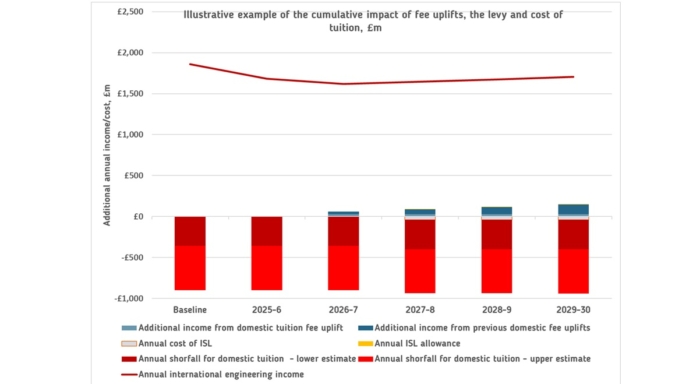The EPC response to this consultation can be found here.
The Office for Students (OfS) is consulting on the introduction of a separate “split indicator” for higher technical qualifications (HTQs) to enable the regulation of student outcomes. HTQs are L4 and 5 HE qualifications linked to occupational standards approved by the Institute for Apprenticeships and Technical Education (IfATE). They can include existing higher national certificates (HNCs), higher national diplomas (HNDs) and foundation degrees, but these qualifications are not necessarily approved as HTQs. The first engineering HTQs were approved in 2022 as part of the third tranche of subjects to be onboarded.
Split indicators are used by OfS, providers, Government and others with an interest in HE outcomes to measure performance of student cohorts – against minimum thresholds – by mode and level of study, subject and student characteristics.
The introduction of a split indicator for HTQs will decouple student outcomes measures for Level 4 and 5 HTQ qualifications from ‘other undergraduate’ with a view to establishing these courses as a distinct type of higher education. The Government also wants to demonstrate the benefit to taxpayers of giving students on these courses early access to the lifelong loan entitlement or additional funding or benefits in future.
The proposals would introduce up to nine additional data cuts for each provider on the proportion of students who continue with their studies, complete their studies and go onto professional employment, further study or other positive outcomes.
This would mean the OfS could assess a provider’s compliance with condition B3 based solely on the outcomes for students on HTQs, but only in relation the existing minimum numerical thresholds set for ‘other undergraduate’ courses. The proposals would also mean that the OfS could take regulatory action, where appropriate, in relation to the outcomes for students studying HTQs, including:
- investigating a provider that had delivered outcomes below a relevant minimum numerical threshold for students on HTQs;
- prioritising HTQs as part of their general monitoring of condition B3;
- considering whether a provider applying for registration it had delivered outcomes above the minimum numerical thresholds for students on HTQs.
The proposals defer, for at least two years, the introduction of different numerical thresholds for HTQs to those for other Level 4 and 5 courses leading to separate evaluation of HTQ / other undergraduate courses. The current minimum numerical thresholds that apply to OUG courses are:
| Mode and level of study | Continuation | Completion | Progression |
| Full-time OUG | 75% | 65% | 45% |
| Part-time OUG | 55% | 55% | 65% |
It is not proposed to establish HTQs as a level of study, so performance data for these courses cannot be split by various characteristics – including subject – (mostly due to small numbers currently). However, OfS has clearly signalled that it will review this and test the extent to which a different numerical threshold to other OUG courses may be appropriate in future should the Government’s expectation that HTQs will attract increasing numbers of students over time be met.
The full consultation documentation is available here. The EPC is planning an Executive response (you can see the EPC consultation policy here) and welcomes input from EAN members. Please share your thoughts on the following questions. The OfS consultation closes on 9th November. Please make any comments before Monday 9th October 2023. The OfS will publish a summary of responses to this consultation in early 2024.




